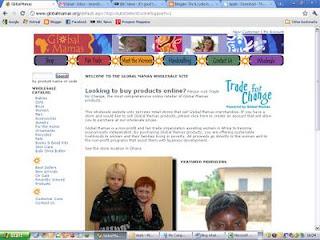This study looks into the pros and cons of living in Elmina, Ghana vs. London, England.
On the plus side…
Ellen and Apeah
Ellen is our housekeeper, a wonderfully helpful Ghanaian lady who keeps the place clean, does all the washing up, all the clothes washing, bottles clean water and puts it in the fridge, changes and washes the bed sheets and tends to the house’s vegetable patch. Apeah is our night guard and general maintenance man. Here’s a video of him mowing the lawn…
Chores in Elima do not exist (+10 points)
Food
Within a 5 minute walk of the house is a chap who sells sausages (normal, pure beef, and gizzard, mmm…), a lady who makes rice and chicken dishes, Eli, who cooks us a huge meal 3 or 4 nights a week and Joe, who knows exactly what he’s doing with these slippery fellas. His marinades and salsas are to die for. Lobster is £0.80 for a decent portion.
Joe's son, Ismael, cooking on the BBQ
No need to cook, ever (+12 points)
The daily commute
For 12 minutes each morning we’re subjected to the monotony of an endless, beautiful sandy beach with crashing Atlantic waves and views for miles out to sea. To avoid getting bored in the mornings we watch the drag net fishermen haul in their catch, stop randomly to say hello to the taxi driver’s families and pickup 8 year old kids on their way into school.
Commuting is fun (+6 points)
The weekend
This hotel pool is a 3 minute walk from our front door. From 8am to 1pm Saturday and Sunday it’s ours, no one else is ever here. Membership is £4 per month, and that includes use of the gym, tennis court and basket ball court.
Private infinity pool and gym (+7 points)
On the minus side…
The heat
It’s hot and getting hotter. If you’re outside during the day you need to be in shade, or have a full-on breeze in your face. ‘Sitting in the garden relaxing’ is not even remotely on the agenda; you’d last 30 minutes and would have first degree burns. Oh, and this is the cold season.
The need to be in front of a fan all day, and the rate at which you sweat through clothes (-6 points)
The sea breeze
Saltwater ruins metal, a less well known fact in the centre of London. In Elmina we’re 50m from the sea and the crashing waves put a constant light saltwater mist into the air, which eats through anything it touches. Aside from the horrible aesthetic look of flaking brown metal, reducing the lifespan of all metal equipment to 2 years incredibly expensive. Laptops, sadly, are included.
Everything metal dies fast (-5 points)
Flooding
When it rains it properly rains!
The garden goes underwater from time to time (-4 points)
Water shortfalls
The Ghanaians haven’t quite got fresh water sorted yet and the supply turns off from time to time. Everyone has ‘Polytanks’ on their roofs which hold some reserve but they do run out so people conserve water. That means turning the shower off while you lather; flushing the loo only if it smells, and being prepared to have nothing come out of the tap right when you need it. I’ve taken to showing from a bucket now, it’s easier than dealing with the low water pressure.
Running out of water mid shower (-7 points)
Creatures
There are a number of friendly creatures in Ghana that are always pleased to make your acquaintance. Some, like the ant and the cockroach just want your food. Others, like the mosquito and sand-fly want your body. And Betty here just wants a quiet corner to sleep in…
Being eaten alive in bed and ‘landed on’ on in the shower (-12 points)
In conclusion:
Positives + 35
Negatives - 34
Net + 1
This report has conclusively shown that it is preferable to live in Elmina, Ghana when compared with London, England.
Lots of Love,
Tim & Lyd x
















































